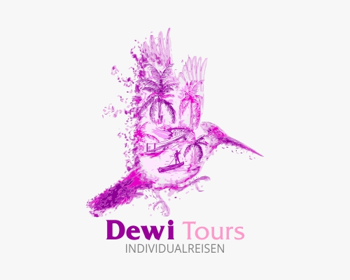Currency
 The official currency of Indonesia is the rupee, which is issued and controlled by Bank Indonesia. The currency code for rupees is IDR and the currency symbol is Rp. The law requires all transactions to be made in rupiah. Information on the daily exchange rate can be found in newspapers, on the Internet or on online apps. Credit cards are widely accepted in hotels, large restaurants, and large stores.
The official currency of Indonesia is the rupee, which is issued and controlled by Bank Indonesia. The currency code for rupees is IDR and the currency symbol is Rp. The law requires all transactions to be made in rupiah. Information on the daily exchange rate can be found in newspapers, on the Internet or on online apps. Credit cards are widely accepted in hotels, large restaurants, and large stores.
Indonesian banknotes are available in denominations of IDR 1,000, IDR 2,000, IDR 5,000, IDR 10,000, IDR 20,000, IDR 50,000, and IDR 100,000. Coins in circulation include IDR 1,000, IDR 500, IDR 200, IDR 100, and IDR 50.
In the major cities of the archipelago, you can exchange foreign currency at banks and money changers. Most vacation spots have money changer facilities; However, if you are traveling to more remote areas, it is advisable to exchange your money beforehand. If you need a large amount of foreign currency and you don’t have a foreign currency account with your bank, it is best to order the money the day before. Local banks keep a limited amount of foreign currency in their smaller branches.
ATMs in the international Plus / Cirrus or Alto networks are common in all major Indonesian cities and holiday destinations. The withdrawal limit depends on your respective house bank. The machines are loaded with IDR 50,000 pieces of banknotes or IDR 100,000 pieces of banknotes, as indicated on the machine; Keep in mind, however, that the larger notes are more difficult to break down, especially in rural, non-touristy areas. It is best to withdraw money from ATMs in major cities before venturing into more remote destinations.
Telephone and important contacts
 Telephone numbers in Indonesia have different systems for landlines and mobile phones: landlines use area codes, but mobile phones do not. In the case of landline numbers, the number “0” is placed in front of the national dialing from Indonesia, but is always omitted for calls from abroad. Instead, callers would use the Indonesian country code +62, followed by the area code without the “0”. In order to be able to call Indonesia via landline from abroad, callers dial +62, followed by the area code and the subscriber number, whereby the “0” is omitted. When calling from abroad to the mobile phone (GSM), the caller dials +62, followed by the number of the subscriber, whereby the “0” is omitted.
Telephone numbers in Indonesia have different systems for landlines and mobile phones: landlines use area codes, but mobile phones do not. In the case of landline numbers, the number “0” is placed in front of the national dialing from Indonesia, but is always omitted for calls from abroad. Instead, callers would use the Indonesian country code +62, followed by the area code without the “0”. In order to be able to call Indonesia via landline from abroad, callers dial +62, followed by the area code and the subscriber number, whereby the “0” is omitted. When calling from abroad to the mobile phone (GSM), the caller dials +62, followed by the number of the subscriber, whereby the “0” is omitted.
Emergency numbers:
-
Police / General Emergencies: 110 or 112 (From satellite and cell phones)
-
Ambulance and medical emergencies: 118 or 119
-
Fire department: 113
-
Search and Rescue (BASARNAS): 115
-
Natural disaster aid: 129
-
Useful numbers:
-
Information for international phone number: 102
-
Information for local phone number: 108
-
Domestic call operator: 100 and 106
-
International call operator: 101 and 107
Tourist information:
Public Communication Office of the Ministry of Tourism: +62 21 3838899
Language

Bahasa Indonesia is the national and official language of Indonesia and is used throughout the country. It is the language of official communication that is taught in schools and broadcast in both electronic and digital media. Most Indonesians also have their own ethnic language and dialect, with Javanese and Sundanese being the most widely spoken. Some ethnic Chinese communities continue to speak various Chinese dialects, most notably Hokkien in Medan and Teochew in Pontianak.
While not much is generally spoken, an acceptable level of English can be understood in a number of major cities and tourist destinations including Bali, Batam, Jakarta, Bandung, Surabaya, and Yogyakarta. In addition, most hotel and airline employees can communicate in English at an easy to intermediate level.
Idioms
Indonesian pronunciation is relatively easy to master. Each letter always represents the same sound and most letters are pronounced like their English counterparts. The following are examples of some common phrases in Bahasa Indonesia that can be useful in conversation:
Good morning = Selamat Pagi
Hello = Selamat Siang
Noon / afternoon = Selamat Sore
Good evening / good night = Selamat Malam
Goodbye = Selamat Tinggal
How are you? = Apa Kabar
I’m fine = Baik-baik (In response to Apa Kabar)
Sorry = Permisi
Pardon = Maaf
Please = Silahkan
Help! = Tolong!
Thank you = Terima Kasih
Please = Terima kasih Kembali
Yes = Ya
No = no
Lord = Bapak
Woman = Ibu
Miss (single girl) = Nona
How many = Berapa
How much does it cost? = Berapa Harganya?
Where is… = Dimana….
How do I get there = bagaimana caranya kesana?
I want … = Saya Mau …
I don’t want … = Saya Tidak Mau …

